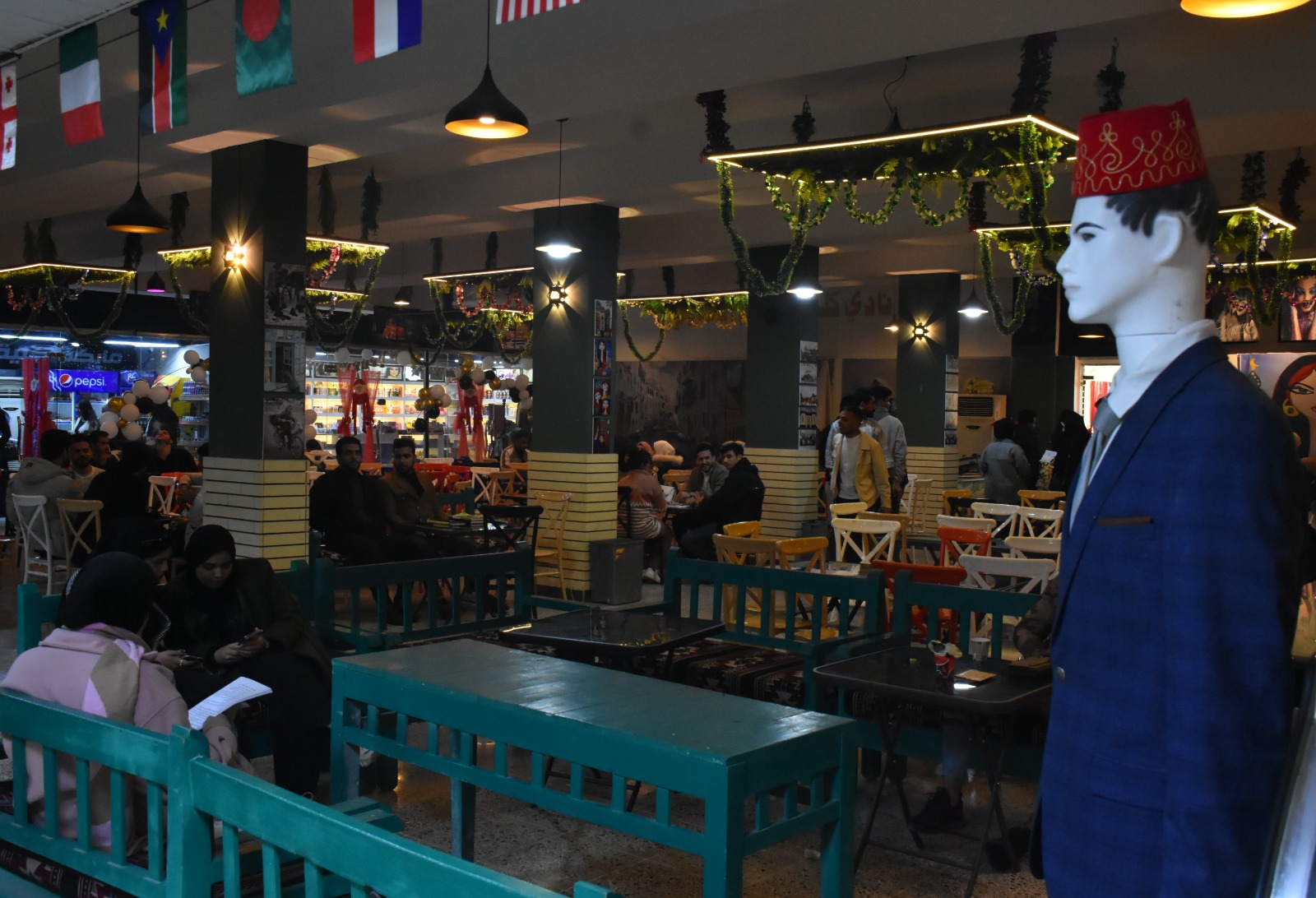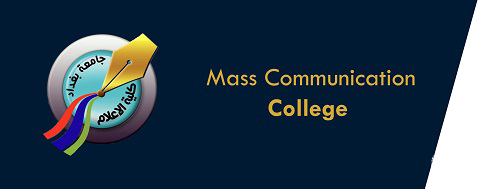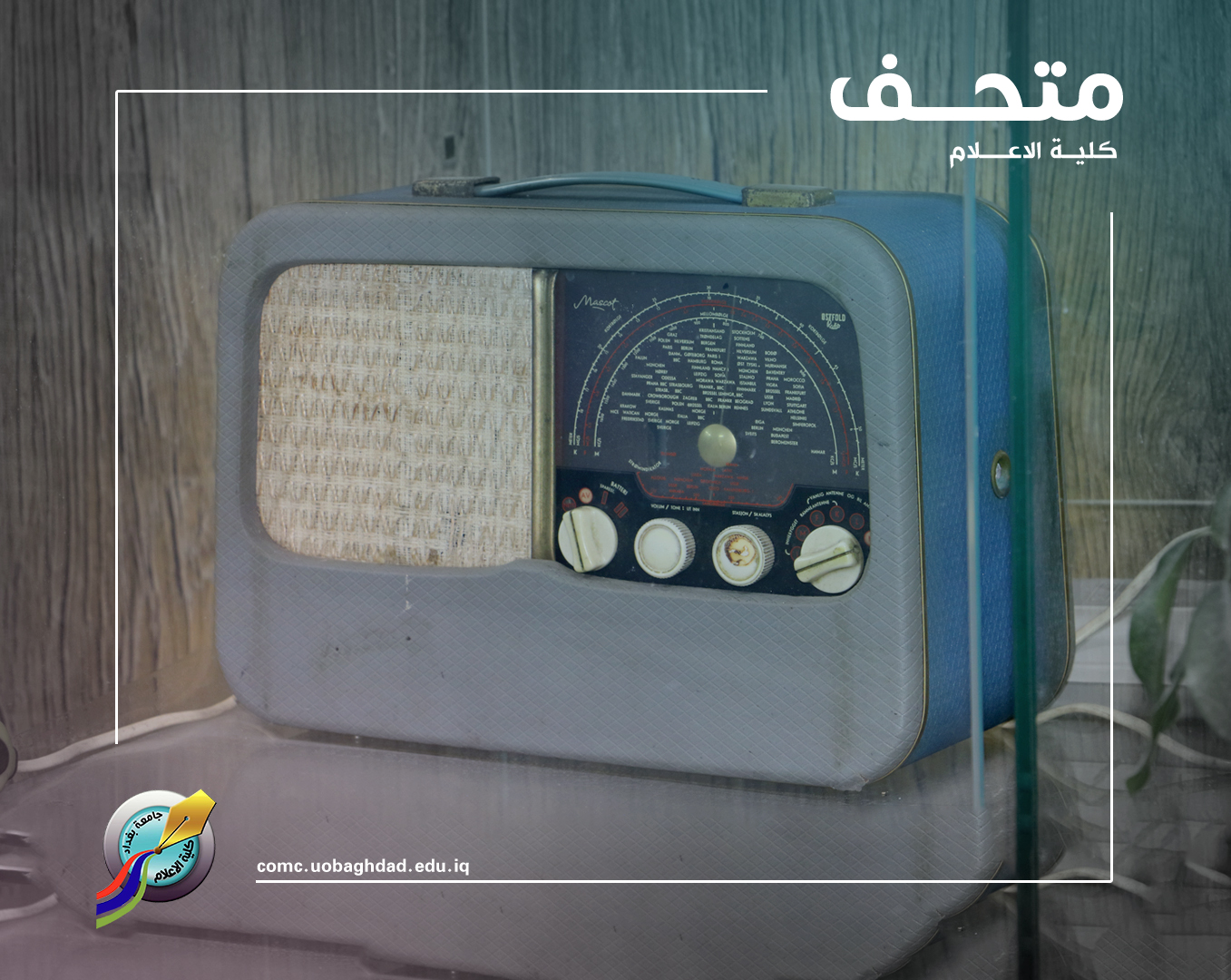
college museum
The concept of the scientific documentary museum of the College of Media is divided into two main sections. The first section showcases the evolution of communication methods and theories throughout history, focusing on the development of mass media—print, audio, visual, and electronic. This includes display boards with concise, reliable information drawn from Egyptian references, alongside images and information about prominent scientists, theorists, and inventors. These displays are enhanced with models, rare communication devices, and visuals from different communication media, presented in a museum-like format. The exhibit is further supported by electronic displays showing documentary video clips, allowing viewers to gain an overview of the development of communication methods, particularly in Iraq.
College Library
The college library is a specialized scientific library focused on media and communication books. It is divided into two sections: the Theses and Dissertations Library and the Books and Scientific Journals Library. The Theses and Dissertations Library houses approximately 744 theses and dissertations, a number that is continuously growing, all within the field of media. The Books Library contains more than ten thousand books in media and communication, and it is updated regularly throughout the academic year.

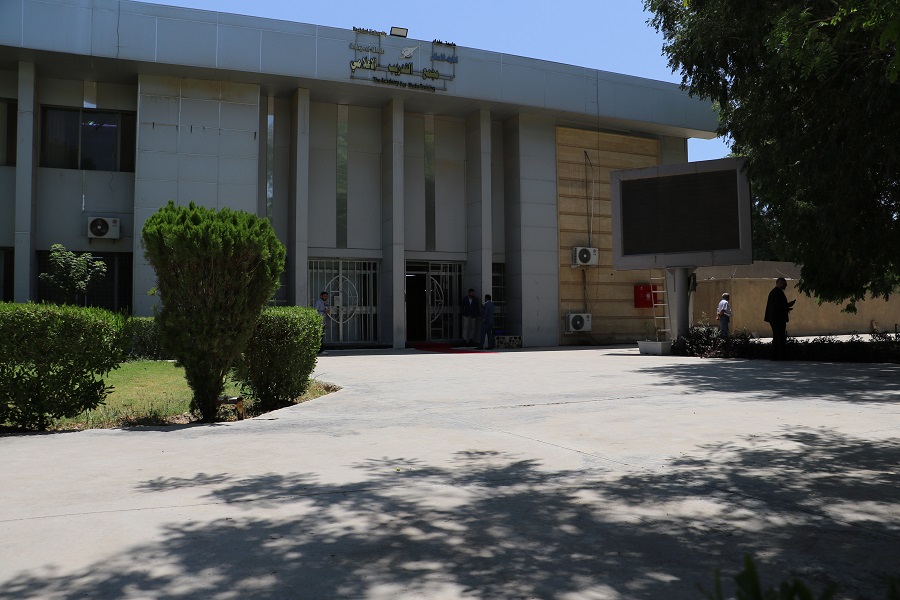
Training Complex
An independent, public local radio station with a scientific and cultural orientation, focusing on student affairs and providing them with news, information, and programs in the realms of science, culture, entertainment, and sports. During religious occasions, it also broadcasts religious programming. The station is dedicated to training and preparing students of the College of Media for careers in radio broadcasting. Through its broadcasts, “The College of Media Radio” aims to engage with its audience by offering diverse programs and adhering to journalistic and media standards that the College of Media strives to instill in the new generation of future media professionals. It also seeks to raise the academic standards of the student community by emphasizing scientific, cultural, and research-supportive programming. Additionally, through its training and preparatory programs, the station pursues its goals of providing students with practical and professional training in all stages of radio production. The station assumes responsibility for training students in areas such as radio editing, production, program preparation and presentation, and the development of radio correspondents and news presenters.
Scientific Laboratories
The college has several scientific laboratories equipped with numerous computers connected to the internet, loaded with specialized media software. These labs provide students with the opportunity to learn and practice media-related technologies, such as editing, design, and radio and television production, as well as familiarize themselves with computer programs and statistical software. These labs also serve as practical components in some lectures and courses, offering hands-on experience related to the professional tasks of media practitioners in the field.
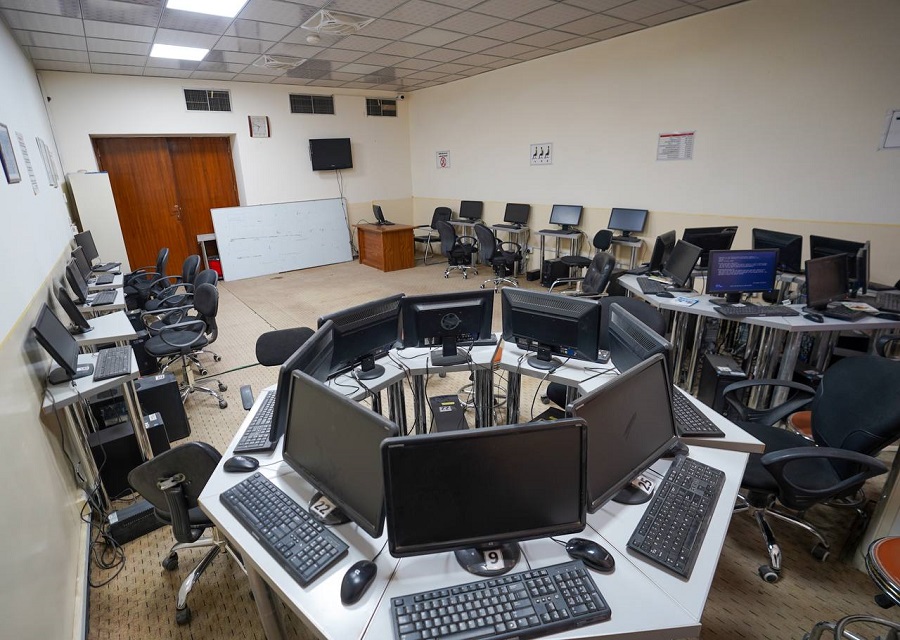
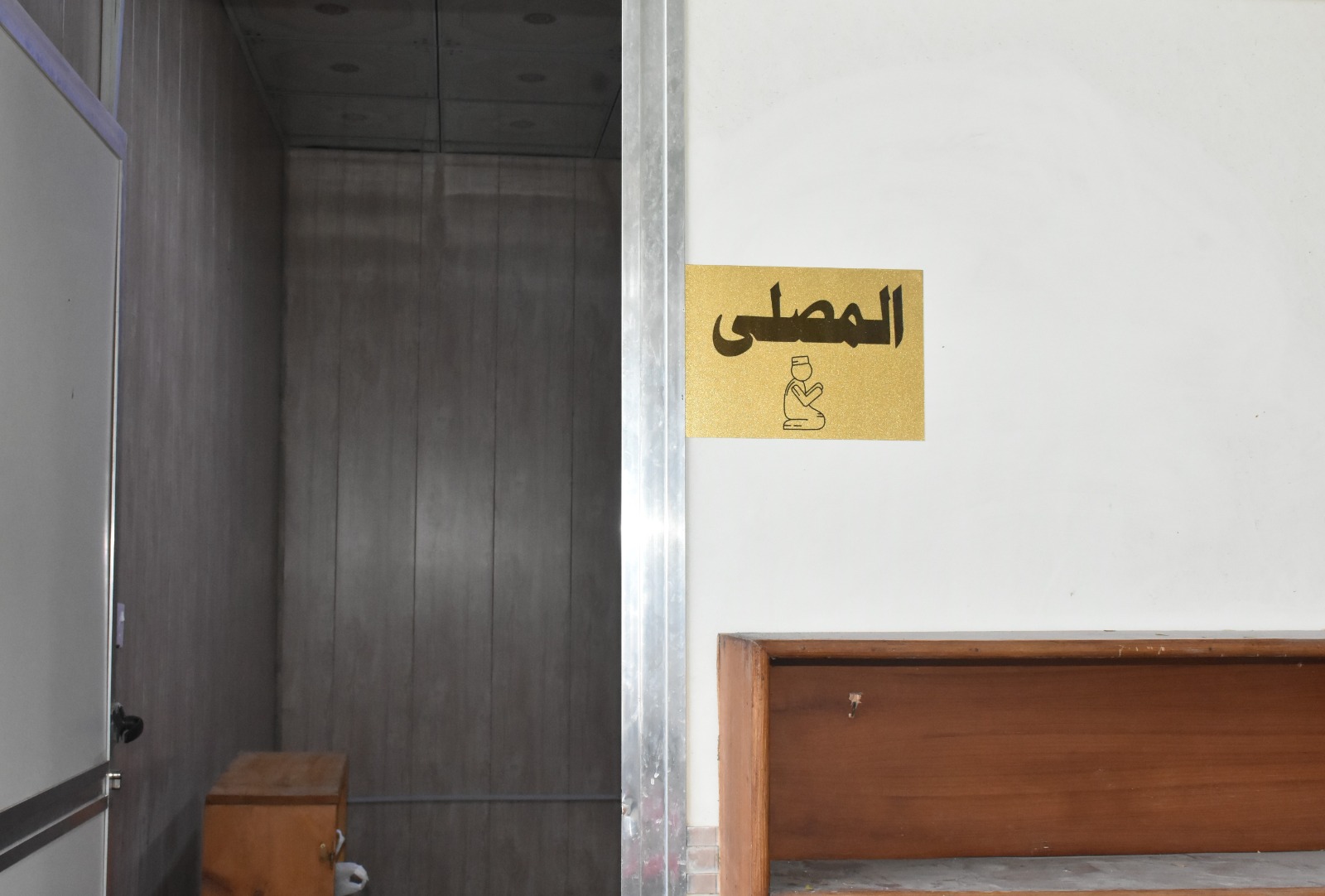
Religious Spaces
The college provides dedicated spaces for students to perform prayers, reflecting its commitment to meet the essential needs of students during their study hours. By offering designated areas for prayer, the college fulfills its duty to enable students to perform their religious obligations at the appropriate times.
Parking Facilities
Parking areas are among the college’s commitments to its students, offering special spaces for parking to prevent the inconvenience of long walking distances. Additionally, large buses are available to transport students within the university grounds, facilitating easy access to their respective colleges and institutes.
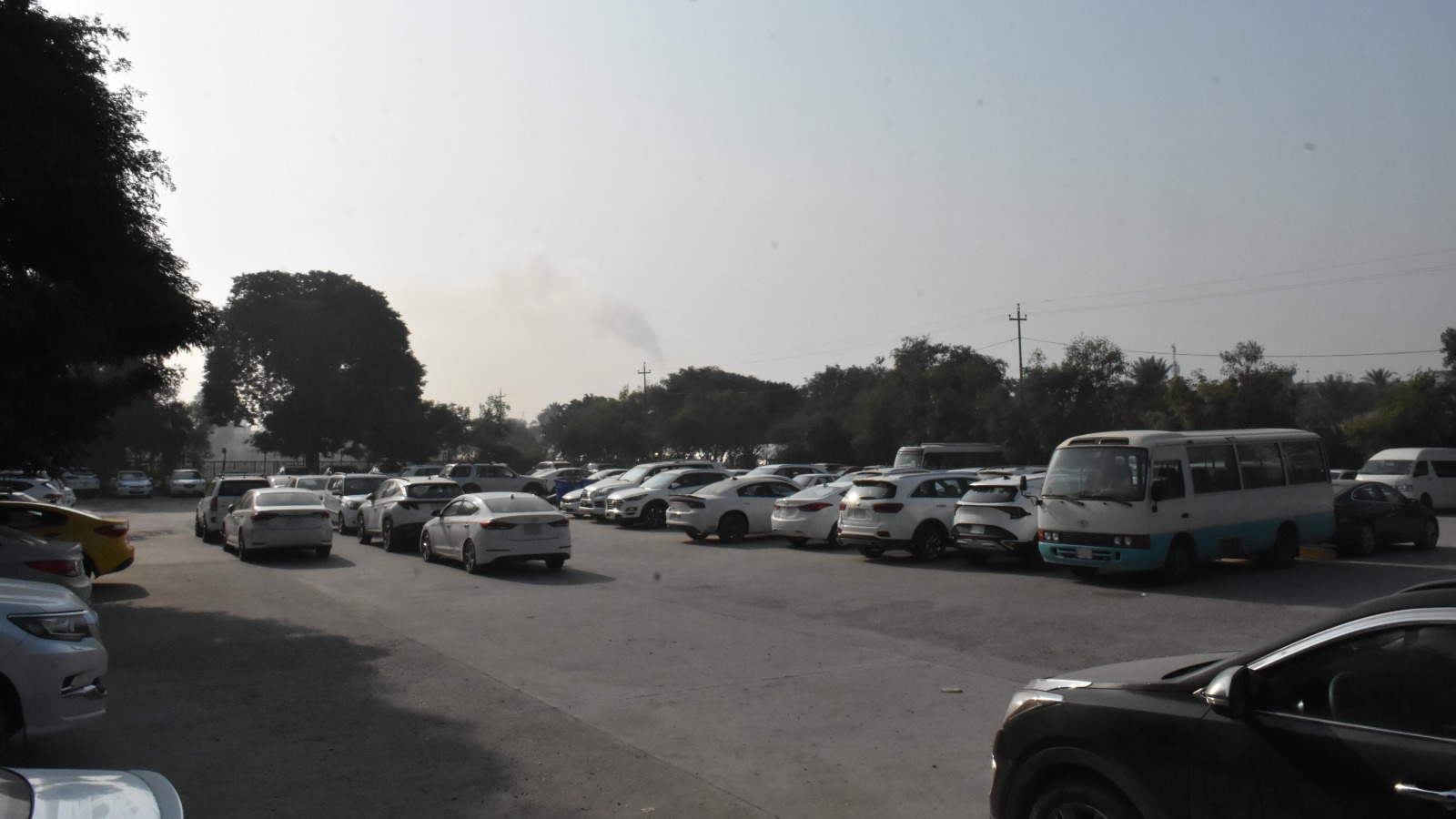
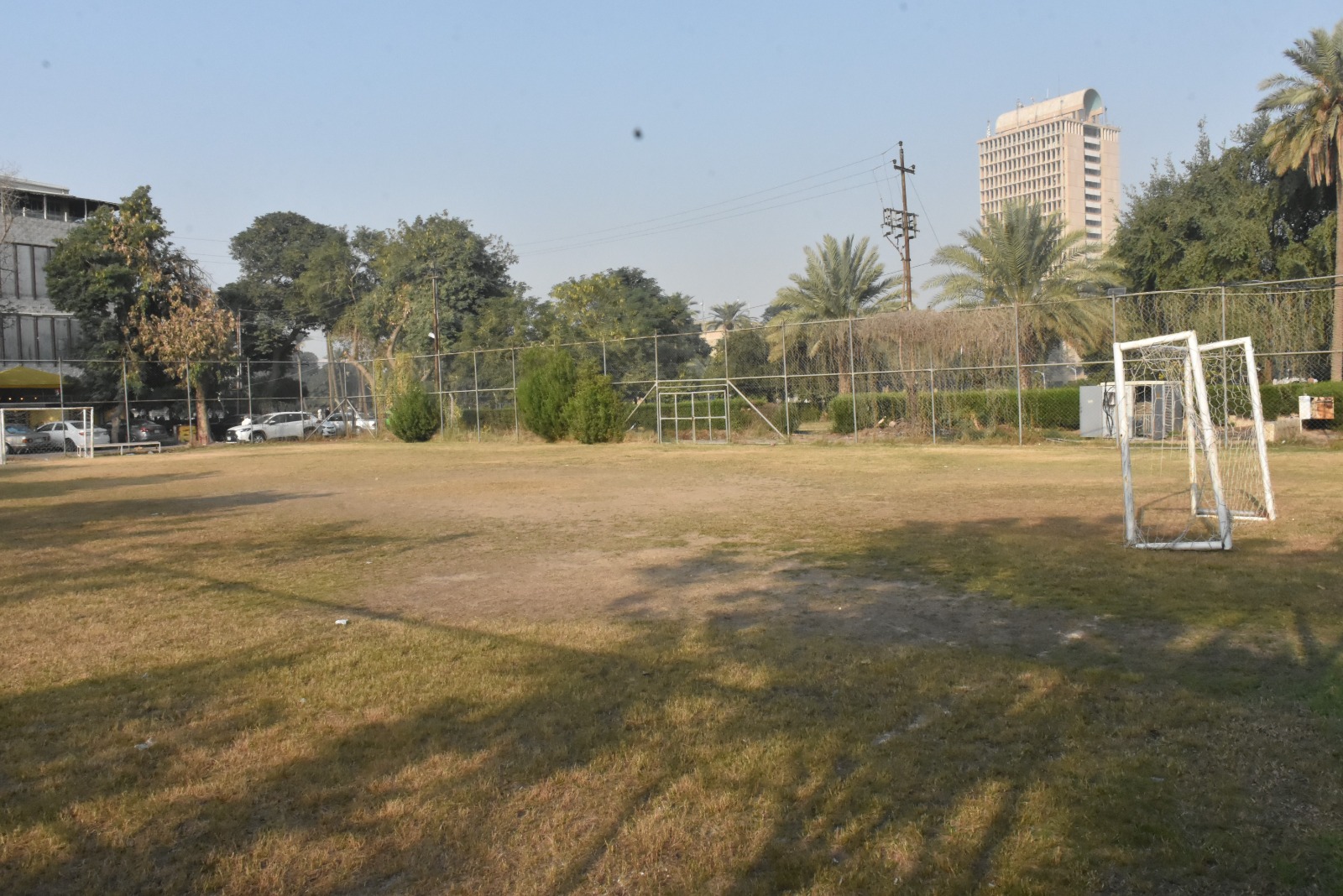
Sports Facilities
The college offers its students various sports facilities, including football fields, basketball courts, and table tennis tables. The college emphasizes the activation of student activities, particularly sports, as part of its vision to create an ideal environment for students by providing recreational and health-oriented activities. The Student Activities Unit is responsible for training students and encouraging their participation in sports events organized at the university level.
Other Services
The college provides recreational services for students by offering a student club, where they can exchange information and engage in discussions during their free time between lectures, as well as have meals between classes. The college also offers a fully-equipped library for photocopying and printing, as well as providing students with the necessary materials for their studies throughout the academic year.
